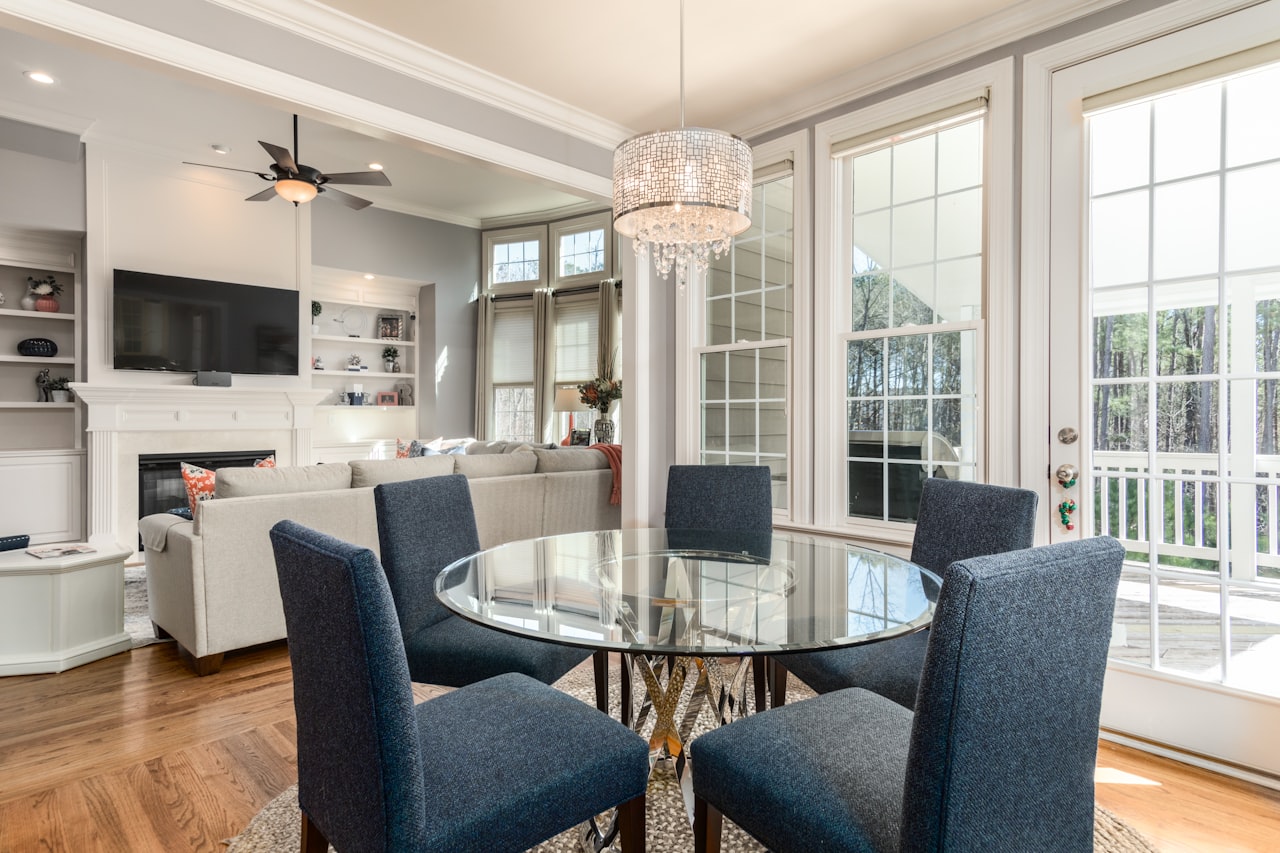

Alexander Levy

Alexander is an expert in marketing and selling luxury properties. It's not just a sale, it's a lifestyle!


Evolving Elegance: A Look into the Future of Luxury Home Design.
Read More
Maximizing Profit and Minimizing Risk in Stockton’s Real Estate Market.
Read More
Exploring Ripon: A Treasure Trove of Family Fun.
Read More
Embracing small town charm and upscale living.
Read More
October in Manteca means the annual Pumpkin Fair and much more.
Read More
The key is to find somewhere you can live well and move around comfortably, withou...
Read More
Enjoy California’s sublime climate with these wonderful outdoor activities.
Read More
A constantly evolving and vibrant food scene tucked away in California’s Central V...
Read More
Navigating the Stockton Real Estate Market with Confidence.
Read More
Discover the Charm and Diversity of Stockton's Top Communities.
Read More
Follow these five steps and complete the corresponding worksheet offered below to ...
Read More
It’s no surprise to see that design trends for 2021 revolve around soothing color ...
Read More
Here’s how to update your home with the latest trends.
Read More
I hope your year is off to a great start! If you’re still working on your 2021 res...
Read More
Find out how to harness the power of home equity for a secure financial future.
Read More
There are factors to consider that might push you to take the leap or stay put fo...
Read More
Before you purchase a lot to build on, be aware of these do’s and don’ts. Building...
Read More
I would be happy to help you find the perfect investment property, and I’ve put to...
Read More
If you are thinking about listing your home this fall, you might be concerned abou...
Read More
When COVID-related shutdowns began in March, real estate brokers and clients scram...
Read More
Increased home sales and price growth, and a tight housing inventory, the time is ...
Read More
More than one million burglaries are committed in the United States each year suff...
Read More
Find out how to become a first time home owner on a budget
Read More
How to stretch your budget in a season of high inflation
Read More
You may be torn between relocating to a new home or renovating your existing one. ...
Read More
An appraisal is an objective assessment of a property’s market value performed by ...
Read More
Nationwide, there were 1.27 million active listings in September, down 13% from th...
Read More
Stress-free home cleaning for busy households
Read More
While some had hoped 2022 would bring a return to normalcy, the U.S. real estate m...
Read More
Selling your home when you still need to shop for a new one can feel daunting to e...
Read More
As you look forward to 2021 you may have spent some time thinking about your inten...
Read More
This climate has been unsettling for some homebuyers and sellers. However, with pr...
Read More
There’s a lot to consider when selling your home, from the market and appraisals t...
Read More
Here are our top six strategies to slash insurance premiums while maintaining the ...
Read More
Here are some tips to help you part with belongings you are attached to but no lon...
Read More
It is a day to give thanks for the world around us and to take action to protect t...
Read More
A high offer price gets attention. But most sellers consider a variety of factors ...
Read More
Deciding whether to jump into the housing market or rent instead is rarely an easy...
Read More
Here are 7 Tips on how to maximize your homes sales price
Read More
Buoyed by historically low mortgage rates, buyers keep shopping for homes, reducin...
Read More
There are plenty of ways to save on home essentials, and we’ve rounded up some of ...
Read More
The process of buying a new home can be both exhilarating and exhausting. But the ...
Read More
Both buying and selling a home are equally stressful, but what about when your'e t...
Read More
Transform Your Home into an Irresistible Showcase with Expert Tips and Strategies.
Read More
Everything you need to know to sell your home for top-dollar offers.
Read More
Navigating Transitions: How to Make Moving Less Stressful.
Read More
Most homeowners who choose to sell their home without any professional assistance ...
Read More
Exploring the rewarding journey of flipping houses in Modesto, CA.
Read More
Unveiling the best experiences and activities for newcomers in Modesto.
Read More
Making the Choice Between Move-In Ready Homes and Home Renovation Projects.
Read More
Enjoy a perfect day filled with stunning views, delicious locally grown fruit, and...
Read More
Experience an unforgettable culinary experience with a loved one inside Stockton's...
Read More
Understanding the unique aspects of the Ripon real estate market.
Read More
Discover Key Factors to Consider For Maximizing the Best Return on Investment Home...
Read More
Uncover the Power of Professional Photography in Enhancing Your Property Appeal.
Read More
Navigating the Path to Homeownership: Essential Steps for Buying a Home in Manteca...
Read More
If you’ve been waiting for the right time to move, this may be the sign you’ve bee...
Read More
Maximizing Your Home's Potential in Ripon's Dynamic Real Estate Market.
Read More
Navigating the Trends: Your Ultimate Guide to the Most Googled Real Estate Questio...
Read More
Your Guide to Acquiring the Perfect High-End Property.
Read More
Top Restaurants Offering Diverse and Delicious Dining Experiences.
Read More
Here's a list of nearby pumpkin patches and local activities
Read More
We have outlined six steps to make your relocation move easier. Our hope is to all...
Read More
This is the current state of the U.S. housing market, the potential opportunities ...
Read More
Here are three signs that owning a rental property could be right for you.
Read More
Owners who go the extra mile are more likely to sell faster and for a higher amount.
Read More
Here we hone in on several key factors that a picture of the current market and wh...
Read More
2023 Real Estate Market Outlook
Read More
Have you considered purchasing a luxury home? Here is what you need to know.
Read More
Common mistakes that many home sellers make. These can cause anxiety, cost you tim...
Read More
Having the eyes and ears of an insightful real estate professional on your side ca...
Read More
The annual inflation rate in the United States is currently around 7.5%—the highes...
Read More
From the coffee snob to the sports enthusiast, these presents are the perfect way ...
Read More
Not many people look forward to the actual moving day whether you are moving acros...
Read More
Short-term rentals can be a highly lucrative investment and a fun way to make mone...
Read More
I’m sure there are things you haven’t learned about our great town yet. Let’s see...
Read More
For most of us, our housing needs are cyclical. Imagine the first place you lived ...
Read More
Luxury homes are usually located in the most optimal areas in a market, and built ...
Read MoreWe have over 20 years of combined experience in Central Valley real estate. Day or night, with our team, our clients receive around the clock care, attending to all of your needs. Not only do we make the buying and selling process smooth, stress-free, and enjoyable as possible but we also get results! We care about our clients and work around the clock to get them the results they deserve. Contact us to ask any questions and get started. Who You Hire Matters!
Contact Us(209) 605-0405 | (916) 844-2023
We have over 20 years of combined experience in Central Valley real estate. Day or night, with our team, our clients receive around the clock care, attending to all of your needs. Not only do we make the buying and selling process as smooth, stress-free, and enjoyable as possible but we also get results! We care about our clients and work around the clock to get them the results they deserve. Contact us with any questions to get started. (Data will not be sold or shared with third parties for promotional or marketing purposes.)
Who You Hire Matters!